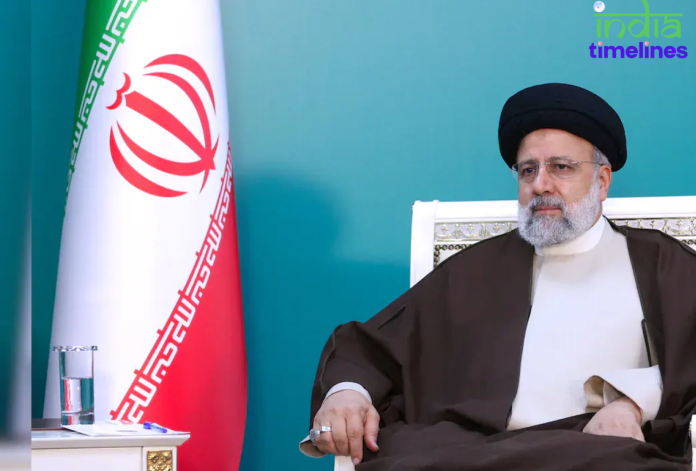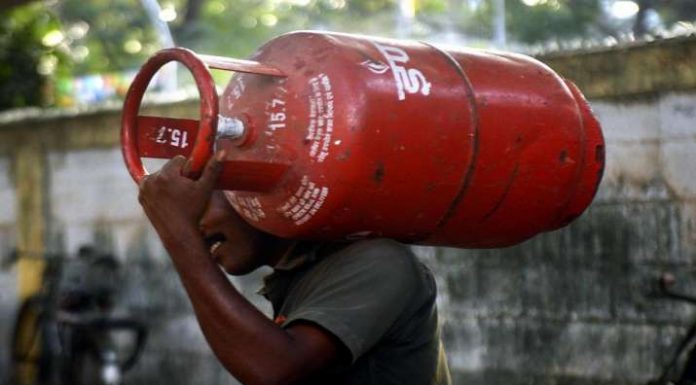
On Sunday, tragic news emerged from New Delhi as Iranian President Ebrahim Raisi met an untimely demise in a helicopter crash within East Azerbaijan province. Reports from Iranian media outlets detailed the unfortunate incident, indicating that the helicopter carrying President Raisi and his Foreign Minister, Hossein Amir-Abdollahian, vanished over a mountainous terrain.
Iran’s state television broadcasted somber updates, revealing that there were no signs of life among the helicopter’s passengers upon its discovery. The grim declaration emphasized the gravity of the situation, leaving little hope for survivors. The loss of President Raisi comes at a pivotal moment for Iran, as the country prepares for upcoming presidential elections scheduled for June 28th.
This unforeseen tragedy unfolds amidst a backdrop of heightened tensions in the region, notably underscored by the recent conflict in Gaza and escalating hostilities between Iran and Israel. President Raisi, who assumed office in 2021, had been a vocal advocate for Palestinian rights, reaffirming Iran’s unwavering support during his addresses, including a notable speech during a dam inauguration ceremony.
Iranian state media shared poignant footage captured aboard the ill-fated helicopter, offering glimpses into the final moments before the tragedy. The video portrayed President Raisi gazing out of the aircraft window, accompanied by several senior officials, among them Foreign Minister Hossein Amir-Abdollahian. The scene, now poignant in retrospect, encapsulates the last visual record of the esteemed leader and his delegation before the catastrophic turn of events.
The loss of President Raisi reverberates not only within Iran but also across the international community, where he played a significant role in shaping diplomatic relations and regional dynamics. His sudden departure leaves a void in Iranian politics, prompting reflections on his tenure and the legacy he leaves behind. As Iran prepares to navigate the transition of leadership, the nation grapples with profound sorrow over the loss of a leader whose impact resonated far beyond its borders.
In the wake of this tragedy, tributes pour in from various quarters, honoring President Raisi’s contributions and mourning the irreplaceable loss. The helicopter crash serves as a stark reminder of the fragility of life and the unpredictable nature of fate. As Iran mourns the passing of its leader, the world watches with sympathy and solidarity, united in grief over the untimely demise of President Ebrahim Raisi.
In a poignant turn of events, Iranian President Ebrahim Raisi and the nation’s foreign minister were discovered deceased on Monday, mere hours following a helicopter crash shrouded in dense fog. This tragic incident leaves the Islamic Republic grappling with the loss of two pivotal figures amid escalating tensions throughout the broader Middle East.
Supreme Leader Ayatollah Ali Khamenei swiftly appointed a relatively unknown vice president as caretaker, underscoring the urgency to maintain stability in a country already besieged by domestic and international pressures. While Khamenei reassured the populace that the government remained firmly in control, the untimely deaths of Raisi and the foreign minister serve as yet another setback for Iran.
Despite the absence of an official explanation for the crash, Iran refrained from suggesting sabotage as the cause, instead attributing the tragedy to the helicopter’s unfortunate descent in treacherous mountainous terrain amid a sudden and dense fog.
In Tehran, the capital city, signs of normalcy persisted with businesses operating as usual and children attending school. However, a palpable air of heightened security permeated the streets, marked by the conspicuous presence of both uniformed and plainclothes security personnel, reflecting the nation’s vigilance in the wake of the calamity.
As the day progressed, grief enveloped the heart of Tehran as hundreds of mourners congregated in downtown Vali-e-Asr square, clutching posters of President Raisi and brandishing Palestinian flags in a poignant display of solidarity. The somber atmosphere was palpable as men, some clasping prayer beads, openly wept, while women draped in black chadors stood together, clutching photographs of the departed leader.
The outpouring of sorrow underscores the profound impact of President Raisi’s demise, reverberating not only within Iran but resonating deeply across the international stage. His steadfast advocacy for Palestinian rights and unwavering commitment to Iran’s principles leaves a formidable legacy, even in his absence.
As Iran navigates the aftermath of this tragic loss, the nation finds itself at a crossroads, grappling with the abrupt departure of key leadership figures amidst a backdrop of escalating tensions and mounting challenges. The void left by President Raisi’s absence serves as a poignant reminder of the fragility of life and the precarious nature of political stability in a region wrought with complexities.
In the midst of mourning, Iran stands resilient, with its people united in grief yet steadfast in their resolve to persevere through adversity. As the nation mourns the loss of President Raisi and his esteemed colleague, the world watches with solemn solidarity, bearing witness to the indomitable spirit of a nation faced with unforeseen tragedy yet undeterred in its pursuit of resilience and renewal.

































